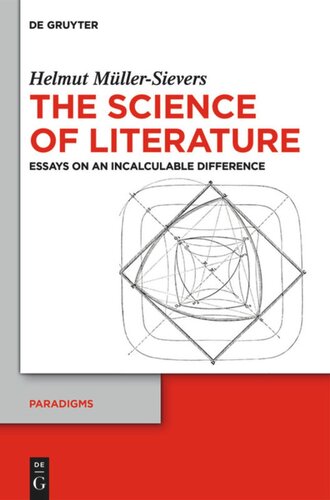

Most ebook files are in PDF format, so you can easily read them using various software such as Foxit Reader or directly on the Google Chrome browser.
Some ebook files are released by publishers in other formats such as .awz, .mobi, .epub, .fb2, etc. You may need to install specific software to read these formats on mobile/PC, such as Calibre.
Please read the tutorial at this link: https://ebookbell.com/faq
We offer FREE conversion to the popular formats you request; however, this may take some time. Therefore, right after payment, please email us, and we will try to provide the service as quickly as possible.
For some exceptional file formats or broken links (if any), please refrain from opening any disputes. Instead, email us first, and we will try to assist within a maximum of 6 hours.
EbookBell Team

5.0
28 reviewsNEW SERIES
One of the most contentious questions in contemporary literary studies is whether there can ever be a science of literature that can lay claim to objectivity and universality, for example by concentrating on philological criticism, by appealing to cognitive science, or by exposing the underlying media of literary communication.
The present collection of essays seeks to open up this discussion by posing the question’s historical and systematic double: has there been a science of literature, i.e. a mode of presentation and practice of reference in science that owes its coherence to the discourse of literature? Detailed analyses of scientific, literary and philosophical texts show that from the late 18th to the late 19th century science and literature were bound to one another through an intricate web of mutual dependence and distinct yet incalculable difference. The Science of Literature suggests that this legacy continues to shape the relation between literary and scientific discourses inside and outside of academia.